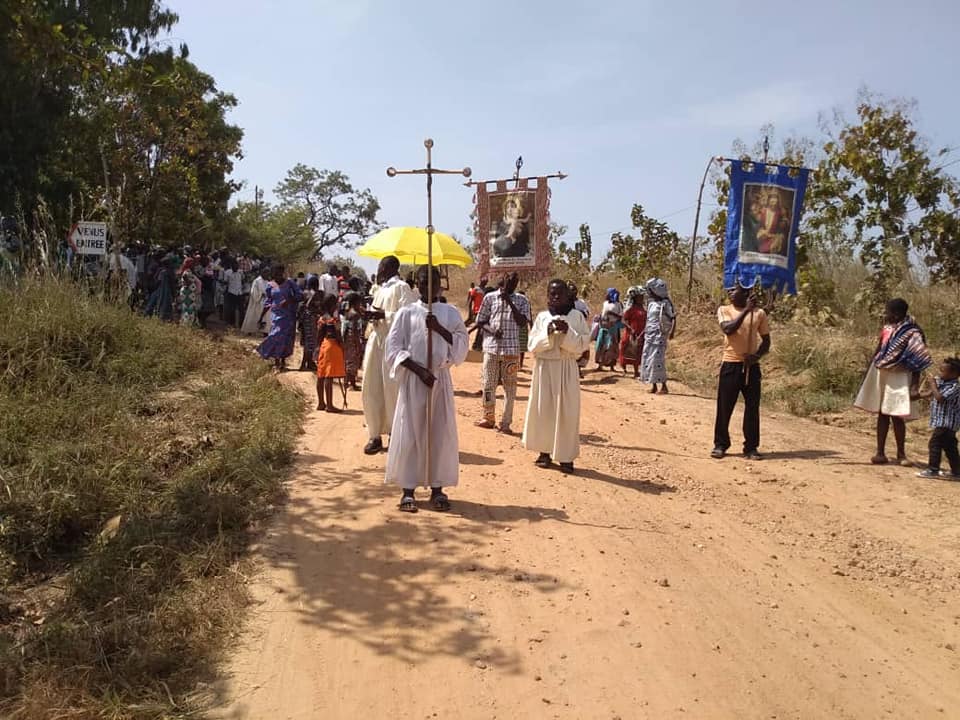Fr Paolo Consonni, MCCJ
01 Sunday LENT Year A
When writing this article, the death toll of the earthquake in Turkey and Syria has already exceeded 42,000. The scale of death and destruction is appalling.
Nature can be very cruel indeed. Yet, the “human factor” is also one of the causes for such a high number of casualties. In fact, even though Turkey has construction regulations that meet current earthquake-engineering standards, they were rarely enforced. As the earthquake struck, buildings easily crumbled and collapsed. Adding to the disaster, Syria is in the midst of a 12-year civil war that has exacerbated the difficulties of bringing emergency aid to the affected areas.
Natural disasters are often inevitable, but it is our culpable unpreparedness which makes things worse. The same can be said about our spiritual life. Temptations are like earthquakes. They shake the solidity of our beliefs and undermine our inner convictions. They widen the fault lines which crack the weakest areas of our soul. If we are unprepared, they can reduce our soul to rubble.
Earthquakes happen because the earth’s tectonic plates, which are in constant friction, withstand tension for long periods of time, till the moment they “snap”, violently releasing an enormous amount of energy. Temptations also begin by building up unhealthy tensions within our souls, until they cause us to “snap” and make wrong and devastating choices.
In the first reading of this first Sunday of Lent, the serpent told Adam and Eve words meant to erode the solidity of their trust in their creator. The tempter wanted the first couple to doubt God’s goodness, thus building up tension and unrest in their hearts: “You will not die; for God knows that when you eat of it your eyes will be opened, and you will be like God, knowing good and evil” (Gn 3:4). We are still paying for the consequences of the “snapping” which followed: original sin.
When Jesus began his public ministry, the devil tried to employ the same strategy: to create doubts and tensions within Jesus’ heart so that he might try to accomplish His mission not according to the Father’s plan but only through worldly means (Matthew 4:1-11). The instinct to prioritize our bodily needs and appetites, the desire to be applauded and the need of controlling others through power are the main fault lines which run deeply within our human souls. No wonder that the Devil strikes there.
Different from Adam and Eve, when the earthquake of temptation came, Jesus was prepared. The 40 days of fasting and prayer gave him a spiritual insight into God’s plan and into His own mission. In one of Pope Francis’ recent catechesis on the topic of discernment, he remarked that “Jesus repels temptations with an attitude of firm resolution. Trials assail him from all sides, but always, finding in him this steadfastness, determined to do the will of the Father, they fail and cease to hinder his path. In spiritual life, trial is an important moment, as the Bible recalls explicitly, and says: “If you come forward to serve the Lord, prepare yourself for temptation” (Sir 2:1). If you want to take the good path, prepare yourself: there will be obstacles, there will be temptations, there will be moments of sadness. It is like when a professor quizzes a student. If he sees that the student knows the essentials of the subject, he does not insist: the student has passed the test. But he must first pass the test” (October 26, 2022).
The timing, magnitude and location of every earthquake is impossible to predict. What we can do is to insist that all construction adheres to strict standards and to know what to do if the ground begins to shake. The same can be said about our spiritual life. We do not know how and when a temptation might suddenly strike, but if our spiritual life is built on solid foundations (not too rigid…elasticity is important too!), then we might be able to withstand them, like Jesus did. By understanding in what ways temptation influences our life, we might gain a better knowledge about the weaknesses and strength of our faith. The more we practice discernment, the more we know how to resist temptation or recover fast from our falls.
At the beginning of this year’s Lent, may the images of the aftermath of the earthquake which continue streaming on the media encourage us to show concrete solidarity with the victims but also to reflect on the state of our “spiritual preparedness” in facing the trials and temptations which our faith must endure if it wants to grow. And as St. Paul wrote, remember that “God is faithful, and he will not let you be tested beyond your strength, but with the testing he will also provide the way out so that you may be able to endure it” (1 Cor 10:13).


 Follow
Follow


